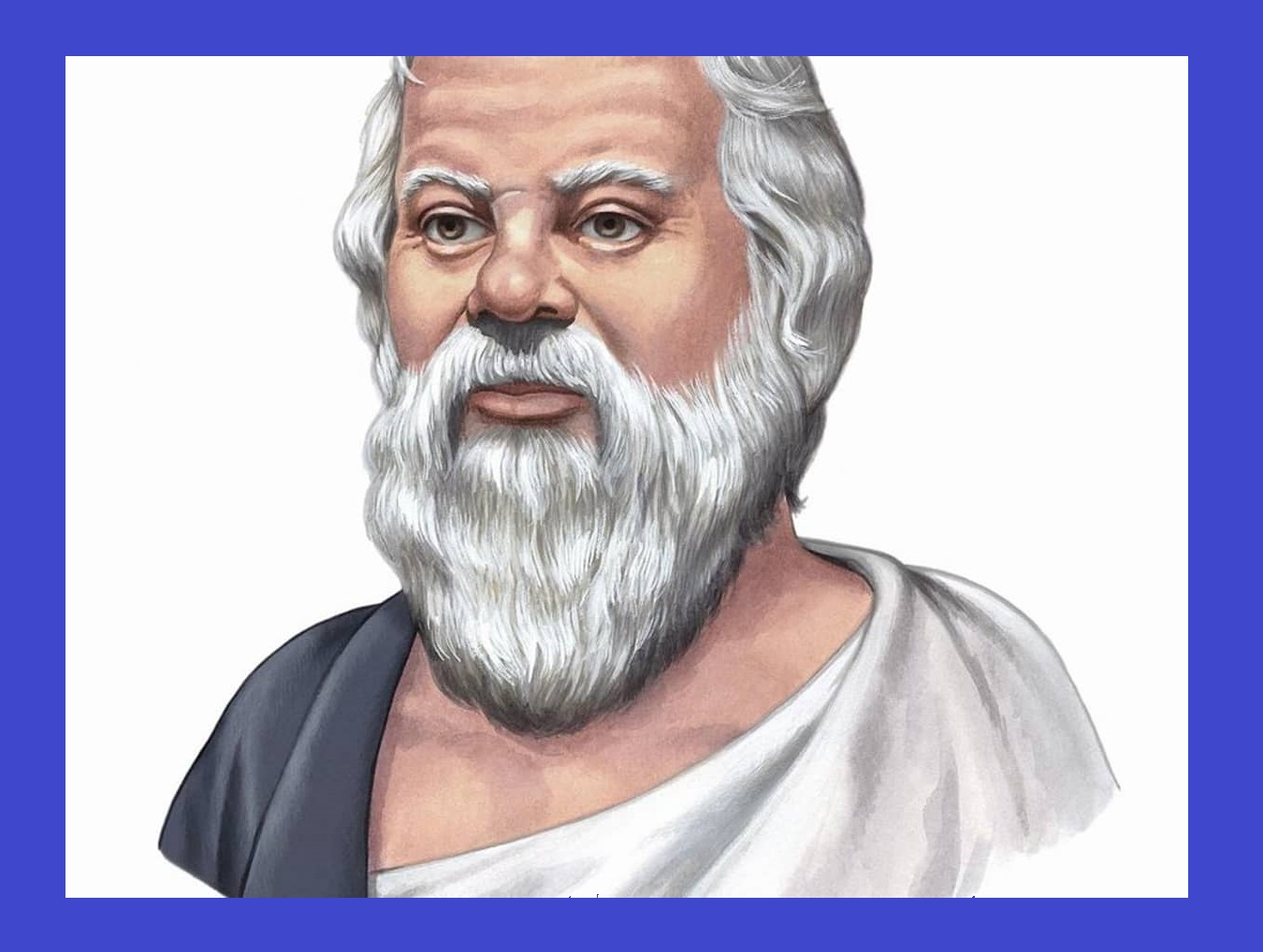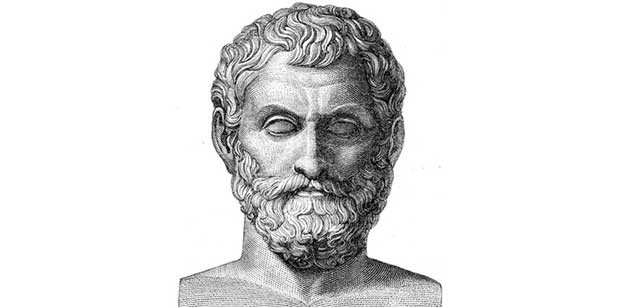Socrates: Greek Philosopher
– There is only one good: knowledge. There is only one evil: ignorance –
- Considered one of the most important philosophers in history.
- Philosophy: Epistemology, ethics
- Contributions: One of the founders of Western philosophy; first moral philosopher
- Parents: Sophroniscus, Fenareta
- Spouse: Xanthippe
- Hijos: Lamprocles, Menexenus, Sophroniscus
- Name: Original pronunciation
Summary
Socrates was an ancient Greek philosopher, considered one of the founders of Western philosophy. According to Plato, his teacher was “the wisest of men.” During his lifetime, Socrates did not write any philosophical dialogues, and much of what is known about him comes from descriptions of him by his disciples, especially Plato.
Questions and answers
- What is the thought of Socrates?
-Socrates argued that the greatest good of the human being is not his belongings, to dedicate himself to what he owns, but rather to what he himself is. - What are the works of Socrates
-He left no written work and his doctrine spread through the writings of Plato, Xenophon and Aristophanes. - What is the philosophy of Socrates?
-He believed that the object of philosophy is to teach virtue and that it is necessary to know the general ethical norms, the universal good, since he considered that virtue and knowledge do not form more than a unit. - What are the contributions of Socrates
-The main contribution of Socrates was his technique to argue. The Socratic method has as its object the discovery of “truth” through dissensions. Socrates proposed questions to his interlocutors, helping thought to “give birth” (maieutics).
“I only know that I know nothing”
Socrates
Socrates was born in 470 BC in Alopece , a town in Athens .
His physical appearance is depicted as a middle-aged man with a strong complexion and a thick, grayish beard. It is believed that he was unattractive and short in stature. Since he was a child he showed ease of speech and sharpness of reasoning.
Although not much is known about his personal life, it is believed that he suffered from arthritis and asthma.
Fathers
His father was a stonemason or sculptor named Sophroniscus , and his mother was Fenáreta , a midwife.
Studies
At first he received an ordinary education as he did not belong to an upper-class family. Before becoming a philosopher, he worked as a mason and stonecutter for several years alongside his father.
He trained in literature, music and gymnastics. Diogenes Laertius , in his Lives of the Philosophers , recounts that Socrates had Anaxagoras , Damon , and Archelaus as teachers and is also said to have been the latter’s lover; he became familiar with the dialectics and rhetoric of the sophists.
Marriage And Children
Socrates married Xantipa , a young woman approximately 30 years younger than him and who, due to her bad character and contemptuous treatment of Socrates, would go down in history as insolent and cruel. For his part, Aristotle says that he also had a second wife, a certain Mirto .
He was the father of three sons: Menexenus , Lamprocles , and Sophroniscus .
Military Life
In the Peloponnesian War he took part as a hoplite soldier ( infantry soldier) against Sparta , in the battles of Potidaea in 432-430 BC (he saved the statesman and orator Alcibiades who, being a general, was wounded), Delion in 424 BC, and Amphipolis in 422 BC His resistance and skill in military campaigns are attested by Alcibiades who highlighted the value of Socrates in battle.
Maieutics
With great acumen of reasoning and ease of speech, he spent most of his life in the markets and public squares of Athens holding discussions and answering questions, a method called maieutics , or knowledge through questioning. Socrates’ maieutics is a method of induction used to lead the interlocutor to recognize his own knowledge. From a dialogue, in which the interlocutor is guided by questions, Socrates leads him to realize what he really knows.
He did not write any books nor did he found a regular school of philosophy.
Everything that is known with certainty about him is due to two of his most notable disciples: Plato and the historian Xenophon .
Philosophy, thought of Socrates
Socrates’ main contributions to philosophy were the method of dialogue and ethics. The basis of his teachings, and what he instilled, was the belief in an objective understanding of the concepts of justice, love, and virtue, and self-knowledge.
Socrates’ philosophy is the foundation of Western philosophy. He teaches that the truth lies within oneself, and that it is better to accept the ignorance of what is unknown than to falsely affirm what is known. He argued that truth had to be sought through reason and critical analysis. Socrates emphasized the importance of questioning and examining everything, and not accepting anything as absolute truth.
He believed that all vice is the result of ignorance and that no person wishes evil; in turn, virtue is knowledge and those who know what is good will act justly.
Socrates was the teacher of Aristippus , who founded the Cyrenaic philosophy of experience and pleasure. He was mistrusted by many who disliked his attitude towards the Athenian state and established religion.
Death
He was accused in 399 BC of despising the state gods and introducing new deities. He also corrupted the morals of the youth away from the principles of democracy, and he was confused with the sophists .
Plato ‘s Apology picks up the gist of his defense at his own trial. Being sentenced to death, his friends planned his escape but he complied with the sentence. Being able to flee, he chose to abide by the sentence handed down by the justice of the polis to die honoring his philosophy.
He spent his last days with his friends and followers, as recorded in Plato’s Phaedo , and on his final night he served the sentence by drinking a cup of hemlock .
His last words were: “Crito, I owe Asclepius a rooster. Don’t forget to pay him back.”
After his death, the Socratic schools and the Platonic Academy appeared .
Recapitulation
- He was a Greek philosopher whose ideas founded Western thought.
- One of the most influential philosophers of antiquity.
- He taught that knowledge is accessible to all through reason and logic, and that virtue is the key to a happy and meaningful life.
- He did not write any book, his teachings were collected and expanded by his disciples, especially Plato.
- His method of questioning his opponents to bring them to the truth is known as the “Socratic method.”
- His dialogues have been studied for centuries and have influenced many later philosophers.
- Socrates’ main contributions to philosophy were the method of dialogue and ethics.
Did you know…
Education
According to Xenophon , Socrates was more interested in the intellectual education of the youth of Athens than in caring for the education of his own children.
Socrates Phrases
- Knowledge is the main part of happiness
- There is only one good: knowledge. There is only one evil, ignorance
- True wisdom is in recognizing one’s own ignorance
- Philosophy is the search for truth as a measure of what man should do and as a standard for his conduct
- Speak so that I know you
- The greatest of all mysteries is the man
- Do not do anything that is shameful, neither in the presence of anyone nor in secret. Let it be your first law to respect yourself
- The friend must be like money, that before needing it, you know its value
- If I had been kicked by an ass, would I report it?
- The best sauce is hunger
- Pride divides men, humility unites them
- Beauty is a short-lived tyranny
- Only knowledge that comes from within is true knowledge
- Only the knowledge that makes us better is useful
- I am a citizen, not of Athens or Greece, but of the world











